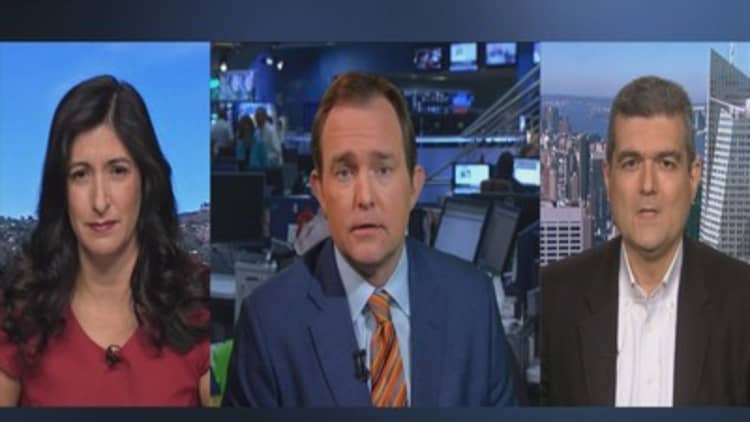Chinese President Xi Jinping's Middle Eastern tour—the first by a mainland leader in seven years—reveals the world's second-largest economy may depart from its trade-oriented foreign policy as it seeks to become a superpower.
After arriving Saudi Arabia on Tuesday, Xi landed in Egypt on Thursday and is due to go on to Iran in a five-day trip that comes as tensions between Riyadh and Tehran flare over the former's execution of Shia cleric Sheikh Nimr al-Nimr.
China-Arab ties date back to the early 1960s, during which the mainland has traditionally focused on energy, commerce and trade ties with the region, choosing to abstain from geopolitical tensions. But while Chinese energy imports and infrastructure projects around the "One Belt One Road" trade initiative will likely form the bulk of Xi's meetings on this trip, politics may be unusually high on the agenda as well.
"It [Xi's visit] constitutes a recognition that China needs to become a player in the Middle East as part of the protection of its interests and if it wants to be taken seriously as a major power," said James Dorsey, senior fellow at Singapore's Nanyang Technological University.
"Arab officials and pundits have long demanded that China act as a superpower and adopt a more active role in the region."
Last year, Yemen's civil war forced Xi to cancel plans to visit the region but since then, China has signaled a grudging recognition that it can longer ignore political issues, he added.
In one sign of increased engagement, China's Foreign Ministry announced last month that it invited members of the Syrian government and the opposition to Beijing, in an apparent effort to position China as a mediator in the Syrian conflict.
Xi's visit also comes on the heels of last week's publication of China's "Arab Policy Paper," the first articulation of a policy towards the Middle East, and one that emphasized growing China-Arab ties in a number fields, including political cooperation, economics, energy and security.
Beijing's newfound engagement comes as Washington, long the sole power capable of managing regional disputes, takes a step back to concentrate on Asia instead.
"Does China seek to fill a geopolitical vacuum that could result from the United States' partial withdrawal from the Middle East in the future? The question is, in reality, a speculative one," independent policy institute Chatham House wrote in a recent report.
It's highly unlikely China would compete with the U.S. to influence political developments in the Middle East merely in order to sustain its own energy supplies, the report added.
International ambitions and rivalries with Washington aside, there are more pressing reasons for Beijing to ramp up involvement in the region.
Fears over terrorist attacks are likely a key factor behind Xi's visit, as the fundamentalist organization known as the Islamic State, or ISIS, increasingly targets the mainland amid rising ethnic strife in China's autonomous Xinjiang region.
Last month, ISIS released a propaganda recruitment video in Mandarin following the execution of a Chinese national in November. Hundreds of Uighurs, a Turkic Muslim group based in Xinjiang, have also joined ISIS as foreign fighters, according to widely circulated figures. Closer to home, there have also been news reports of Uighurs entering Indonesia to join local ISIS-supporting militants.

However, it remains to be seen whether Beijing's newfound agenda will show any results.
"Xi is likely to conclude from his visit that dabbling in the Middle East is easier said than done," said Dorsey, adding that Beijing's unsuccessful efforts to suppress dissent in Xinjiang holds little promise for its ability to help resolve Arab conflicts.
"Taking sides in the Middle East is a risky business and in China could have negative repercussions in Xinjiang. As a result, China has long been careful not to adopt positions that would upset Turkey because of the latter's close ties to the Uighurs, who speak a Turkic language."
Moreover, some commentators doubt China's commitment to non-economic engagement.
"Contrary to many depictions of China's nascent relations with the Middle East, Beijing has maintained ties with the region dating back to the Maoist years. Beijing is therefore aware of the political and security complexities of the region, and will want to keep such issues at arm's length," said the Chatham House report.
Despite rising terror fears, the mainland's relationship with the Middle East is likely to remain commercial-focused, the institute said, noting that Beijing's appetite for a deeper security or military presence there remains limited.


